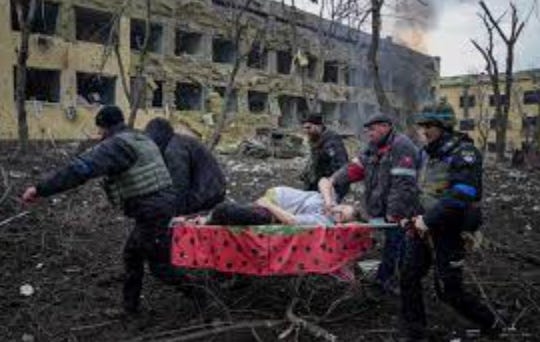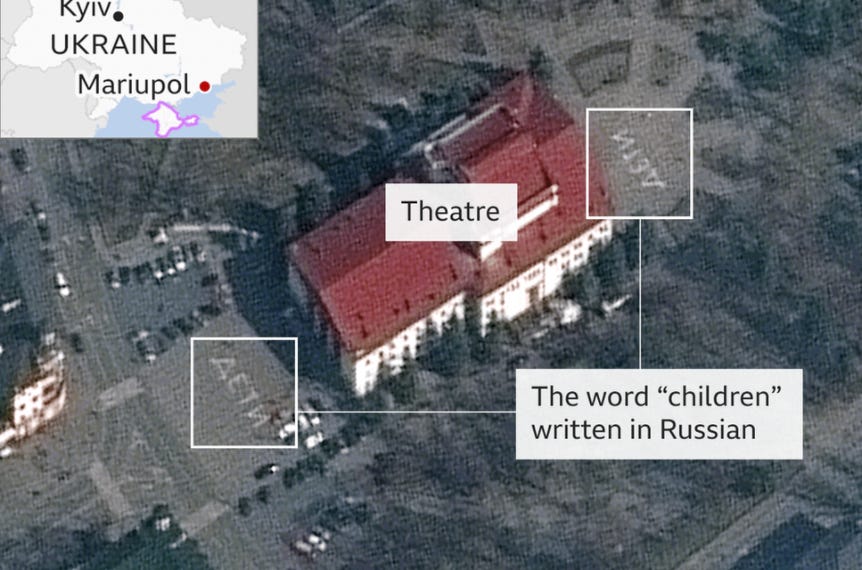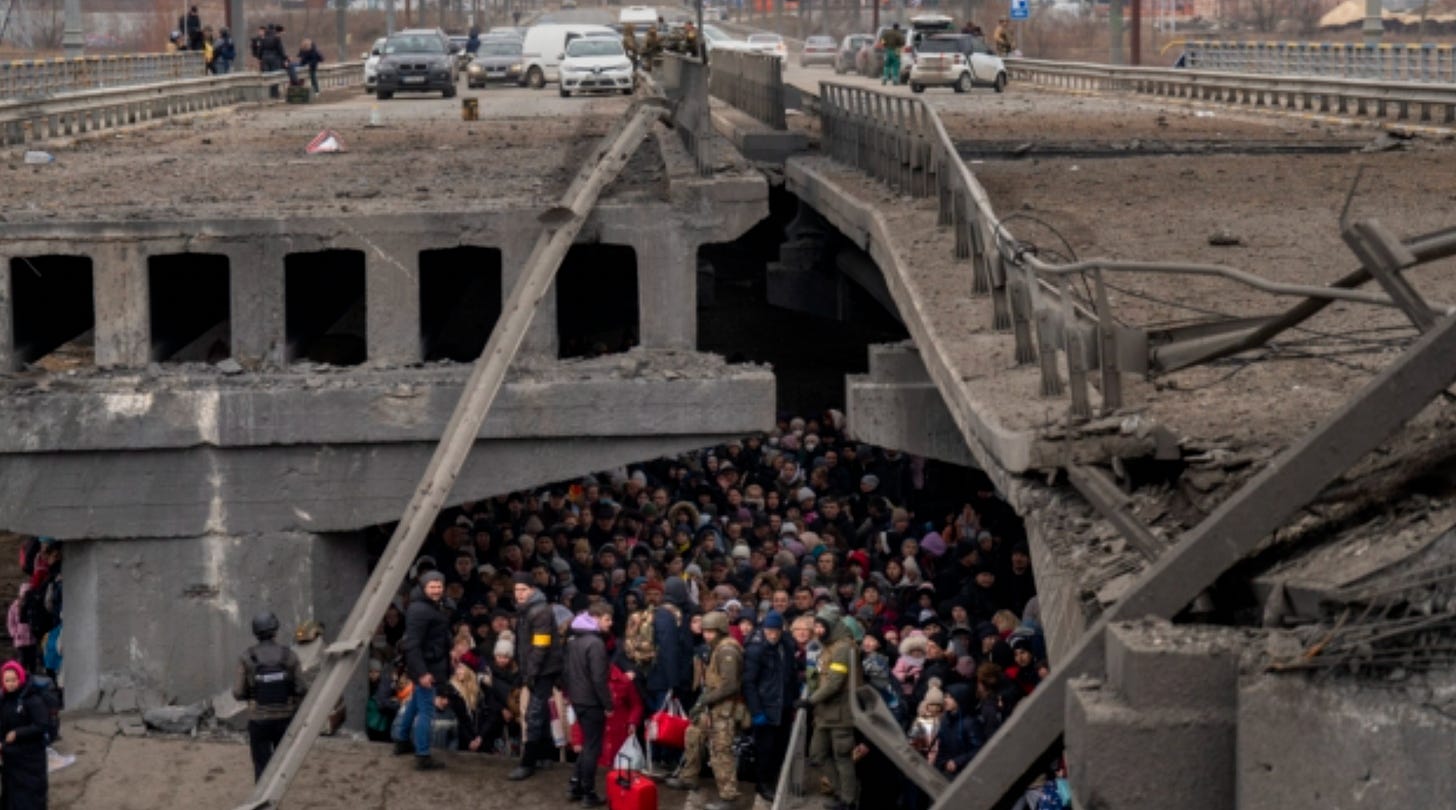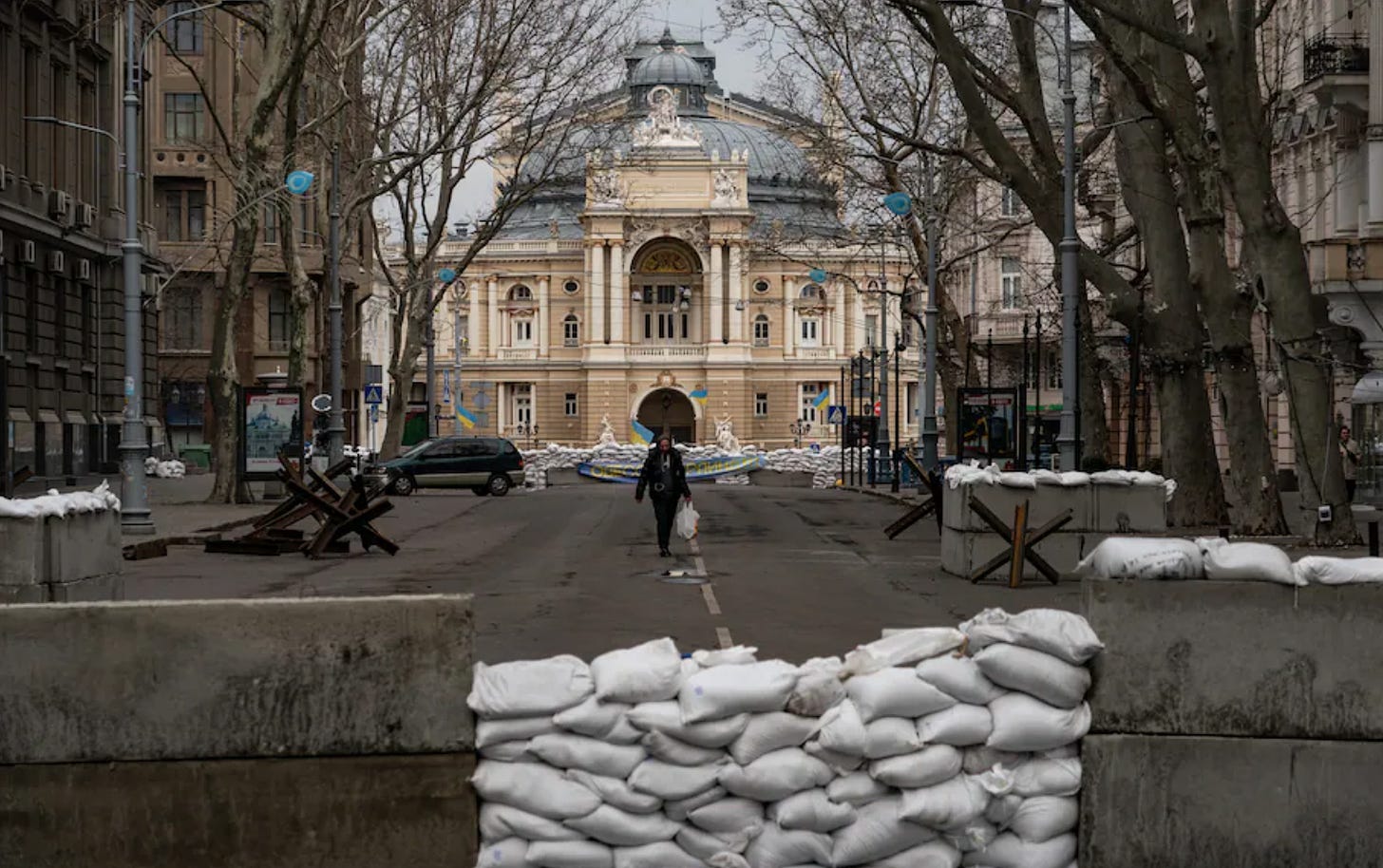Normally, this full newsletter is for paying subscribers only, but the full version is sent to you today in the hopes you will subscribe.
Putin has reserved his fiercest atrocities for Mariupol, a mostly Russian-speaking port of 431,000 people (of Ukrainian, Russian, Greek, and Armenian descent) which has been under siege for weeks. Its residents live in “apocalyptic conditions”, according to the Red Cross, and are under constant shelling without food, water, power, and heat. Russians have purposely blocked humanitarian aid and blown up a maternity hospital, a theatre that sheltered 1,300 children, an art school housing 400, schools, grocery stores, and residences, then fired on those fleeing via ordained “humanitarian safety evacuation” corridors. Russia demands the city’s surrender today and Putin’s barbarity knows no bounds in Mariupol for several reasons: It is relatively small, it repelled his 2014 invasion, it is an important port, and it is the linchpin to Putin’s strategy to connect by land the Russian-held Donbas region and Crimea obtained in 2014.
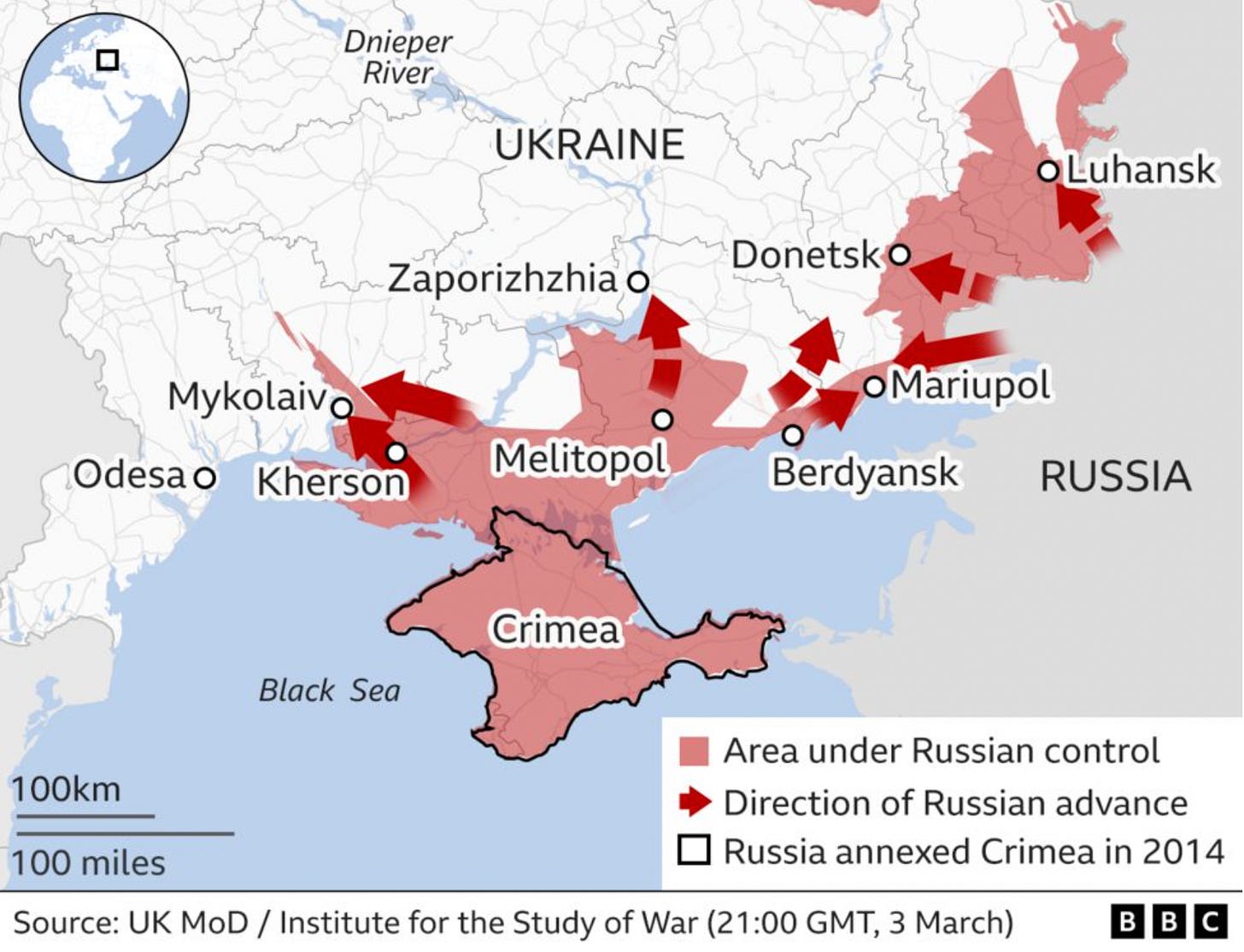
The Battle for Mariupol is significant because its capture would be the only strategic prize obtained in a month of killing — a trophy that would allow him to save face, claim victory, and pause his war. But the city fights back because Ukrainians will never accept occupation. So Putin pummels Mariupol as he runs out of patience and kills civilians in a vain attempt to break the entire country’s resolve and resistance. He’s also mounting vicious attacks in nearby Mykolaiv even though Russian troops have controlled the city for days.
Mariupol is a modern-day Warsaw Ghetto where people are purposely being starved to death. Its people have resorted to melting snow and dismantling heating systems to get water to drink. Everyone lives in basements or bomb shelters. “The fighting is already in the city itself,” an official from the mayor’s office said last week. “But Mariupol remains a Ukrainian city.”
Russia’s treatment of Mariupol is notably craven and will become the grounds for charges of war crimes against Putin and his generals. For instance, on March 5 the Ukrainian government announced its desire to evacuate 200,000 civilians from Mariupol, and the International Committee of the Red Cross said it would act as a guarantor for a new ceasefire to allow for this evacuation. It failed due to Russian attacks. On March 6, the Red Cross announced a second attempt which also failed, and on March 8, a final attempt to evacuate civilians was made, but Russia bombed evacuees.
Mariupol is six miles inland from the Sea of Azov but a dredged channel from its river port leads to the open sea. It’s the main transit point for Ukraine’s metals and minerals exports as well as much of its grain exports. The city also has large iron and steelworks, chemical, machine-building industries as well as ship repairing, fish canning, and flour milling. Ironically, the city is mostly Russian-speaking, including the 59 percent of its population that is ethnically Ukrainian, 33 percent Russian and the rest are of Greek and Armenian background. “Half of those killed by Russian bombing are Russian-origin Ukrainians. This is Putin’s ‘peace’,” said a city official, adding that the Ukrainian army would defend Mariupol until the last man. If it did ultimately fall it would become a “ghost place”, he predicted “there is no Russian Mariupol. It’s going to be a desert.”
Next in line for invasion is Odesa, also a Greek settlement originally and now Ukraine's third-largest city, with nearly one million people. It was laid out in the 17th century by Duc de Richelieu of French Revolution infamy and celebrated by famous Russian poet Alexander Pushkin. Economically, Odesa is Ukraine’s largest port and the ultimate goal of Russia’s Southern Offensive which intends to control all the other river ports — Berdyansk, Melitopol, Kherson, Mykolaiv, and eventually Mariupol and Odesa — and thus landlock the country.
Odesa is a treasure of a city, architecturally, and its destruction and devastation will horrify the world and also many Russians. Even so, Putin’s warships gather near the city’s shoreline and await ground support from Russia’s forces in the east which has been slowed and impeded in Mykolaiv as well by the heroic standoff in Mariupol.
Oleksiy Danilov, secretary of Ukraine’s National Security and Defense Council, warned this week that Russia could attempt to bombard Odesa from the sea in the coming days but that “there is someone there to meet” any landing attempt.
The West must weigh in and deliver non-military supplies by guarding their passage, guaranteeing Ukraine’s future security, and requiring a Russian retreat in return for the gradual lifting of sanctions. As Zelensky said in a March 20 CNN interview: “Russians are acting in the same manner as neo-nazis at the moment. They have blockaded cities, prevent supplies of water and food, which is exactly what Russians are doing now in Mariupol… We are losing people on a daily basis, innocent people. Russian forces have come to exterminate us. We are able to strike back. We have to use any format, chance to have the possibility of negotiating, but if these attempts fail that would mean that this is a Third World War. Security guarantees for Ukraine are on the table right now. NATO could be a source of guarantees but we’re not accepted as a member. We need guarantees from other countries… You cannot leave us in this limbo.”



